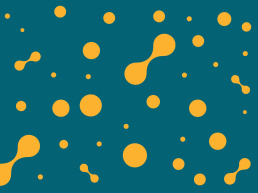Pedro Morgado, psychiatrist and researcher at Minho University, is the winner of the FLAD Science Award Mental Health 1st edition, from the Luso-American Development Foundation (FLAD). The researcher will receive 300.000 euros, the largest award in the area of Mental Health in Portugal, to develop an innovative project towards improving the diagnosis, treatment prediction, and efficacy of this care within obsessive-compulsive disorder.
The FLAD Science Award Mental Health is an unheard of support for young researchers in Portugal to develop new lines of clinical research in Mental Health, from prevention to treatment and rehabilitation. FLAD’s goal is to contribute to the quality of life of people suffering from mental disorders, at a time when Mental Health needs are even more evident.
In this sense, this will be an annual award, to fund young researchers with quality projects in collaboration with research centers in the United States, a total of 300,000 euros over 3 years. The initiative is recognized by the Minister of Health, Marta Temido, the World Health Organization (WHO), and the United Nations High Commissioner for Human Rights.
Pedro Morgado is a researcher at ICVS of the School of Medicine from Minho University and a psychiatrist at the Braga Hospital. The winning project – A new hope for resistant Obsessive-Compulsive Disorder – innovative strategies for outcome prediction and treatment –will have two components:
- The collection of brain images of patients with obsessive-compulsive disorder, using functional MRI, for an initial evaluation and to assess the impact of treatments beyond that reported by the patient, and, thus, try to find ways to better the diagnosis and increase the efficacy of treatments.
- In the second part, the researcher will conduct a clinical trial for the use of a drug currently available to Parkinson’s patients in people with obsessive-compulsive disorder. This is a medicine that contributes to the reinstitution of dopamine in areas of the brain where there are such deficits, which may offer a new route of treatment for people suffering from this condition.
The execution of a clinical trial for a new use of a drug is something rare in Portugal, even more so in the case of this disease, something that becomes especially important since approximately 50% of patients with obsessive-compulsive disorder have resistance to first-line treatments (antidepressants and psychotherapy).
In a process with high-quality applications, which according to the jury reveal the quality of Portuguese researchers, Pedro Morgado was chosen unanimously.
“Mental illnesses and disorders are increasingly common and disabling. Establishing a clinical research award in the area of Mental Health, FLAD aims to support young researchers who, by unveiling the complexity of multiple genetic, social, and environmental influences, propose to develop and validate more effective prevention strategies, therapeutic solutions, and rehabilitation approaches. In this edition, the winning project aims to characterize the function and structure of the brain in obsessive-compulsive disorder, in order to better predict the effectiveness of different treatments.”
The members of the jury highlighted not only the quality of the project, but also the ambition and focus on concrete problems that affect people with mental illness.
“The winning project has not only a solid scientific quality, but also a high potential for the sustained development of a research team focused on concrete problems for people with mental illness.” – Miguel Xavier, Director of the Portuguese National Mental Health Program (DGS)
“This is an ambitious project, very well planned, which will contribute to advance the knowledge of the obsessive-compulsive disorder and opens new perspectives in its treatment. The collaboration with the research group in the US will contribute to the internationalization of a promising young clinical researcher, allowing him to reinforce his research group. Thus, it fully fulfills the goals of this award and will contribute to the progress of clinical research in the field of mental illness at the national level.” – Catarina Resende de Oliveira, President of the Agência para a Investigação Clínica e Inovação Biomédica (AICIB)
“FLAD has selected a tremendous Mental Health Science awardee from a prestigious pool of candidates. Dr. Pedro Morgado will lead his team of researchers at the University of Minho to research innovative strategies for treatment resistant Obsessive-Compulsive Disorder (OCD). OCD has a devastating impact on peoples’ lives and one which historically has been challenging to treat. This research grant signifies a promising road for understanding this disease more fully and ultimately offering help and relief for many people who are suffering from this disorder.” – Margaret Lanca, Assistant Professor in the Department of Psychiatry at Harvard Medical School
About the jury
The evaluation of this award was made by a scientific committee composed of:
- Catarina Resende de Oliveira, Full Professor at the Faculty of Medicine of Coimbra University, former Director of the Center for Neurosciences and Cell Biology (CNC), President of the Agência para a Investigação Clínica e Inovação Biomédica (AICIB).
- Miguel Xavier, Full Professor at the Faculty of Medical Sciences of the NOVA University of Lisbon, Director of the Portuguese National Mental Health Program (DGS) and Psychiatrist at the Hospital Center of Western Lisbon.
- Margaret Lanca, Assistant Professor in the Department of Psychiatry at Harvard Medical School, President of the Massachusetts Psychological Association and Director of Adult Neuropsychology and Psychological Testing and Training at the Cambridge Health Alliance.
About obsessive-compulsive disorder
Obsessive-compulsive disorder, which affects up to 4% of the Portuguese population, impairs children and adults and is characterized by recurrent obsessions and constantly repeated behaviors. The disease can be highly disabling, since people are overpowered by thoughts that appear in their minds and that generate intense anxiety and suffering.
Related Posts
3 de July, 2024
B+S Bispo D. Manuel Ferreira Cabral School, from Madeira, wins Atlântico Junior Award
Students win with a project to create…
29 de May, 2024
Five Fellows Selected for the Fulbright/FLAD Scholarship
Master's students will undertake a…
29 de May, 2024
FLAD Science Award Atlantic 2024: applications from June 1st
Young researchers can apply until June…



